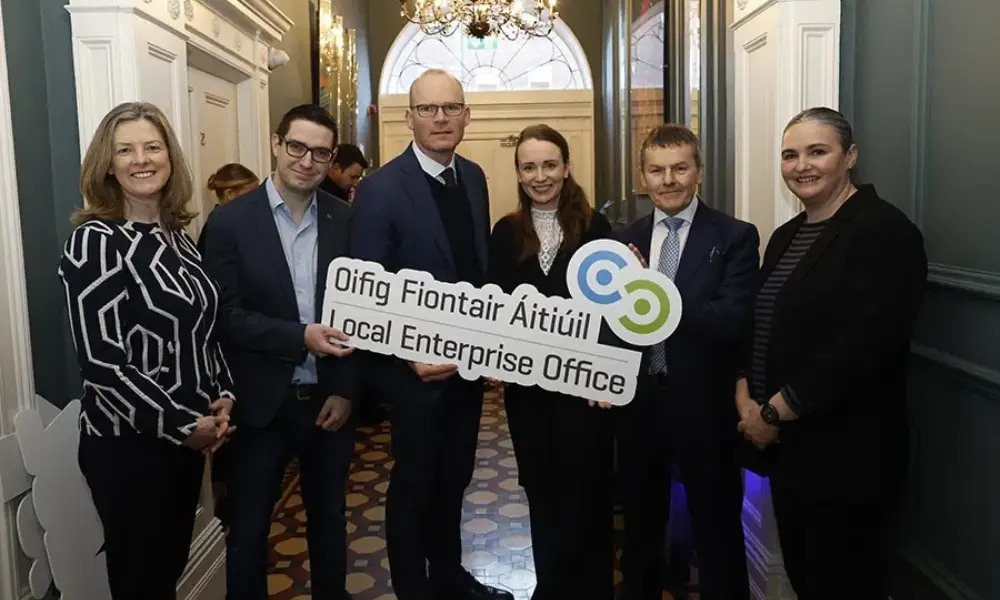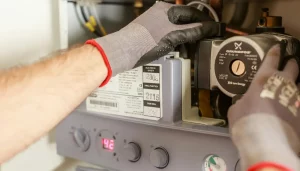Running or expanding a field service business—whether you install electrical systems, service boilers, manage pest control, or maintain facilities—often means balancing growth ambitions with tight cash flow.
The good news is that both the UK and Irish governments continue to back small and medium-sized enterprises (SMEs) with funding schemes designed to stimulate innovation, digital adoption, sustainability, and job creation.
In this guide, we’ll explore the grants, loans, and support available in 2025, explain eligibility, and show how the right business systems—like Fieldmotion’s job management software—can help you meet funders’ expectations around productivity, data management, and environmental impact.
Here’s what we’ll cover:
What Are Small Business Grants?
A grant is money awarded to your business that doesn’t have to be repaid, provided you meet the scheme’s terms.
Unlike loans, grants are usually targeted at specific outcomes—for example, creating jobs, cutting carbon emissions, or adopting digital technology.
Most are administered by national or regional agencies such as the Department for Business and Trade, Innovate UK, or local councils, and can fund anything from equipment purchases to staff training or feasibility studies.
Typical examples include:
| Grant Type | Typical Purpose | Funding Range |
|---|---|---|
| Digital Transformation Grant | Support for adopting field management software or automation tools | £1,000 – £10,000 |
| Energy Efficiency or EV Infrastructure Grant | Upgrading vehicles or installing workplace chargers | £2,500 – £15,000 |
| Innovation or R&D Grant | Developing new service technology or data solutions | £25,000 + |
| Skills or Apprenticeship Support | Upskilling technicians or hiring trainees | Varies by region |
In return, funders expect transparency—proof of spending, business performance reports, and sometimes, measurable benefits such as carbon savings or employment outcomes.

Why Government Grants Matter for Field Service Businesses
Grants and low-interest government loans can make the difference between standing still and scaling efficiently.
In 2025, energy and wage inflation continue to affect service margins, while customers expect faster, greener, and more transparent operations. External funding can help tackle all three challenges.
1. Invest in digital transformation
Schemes promoting productivity gains directly support adoption of tools such as Fieldmotion, which help prove efficiency improvements when applying for funding. Many local grants now view software investment as a legitimate form of innovation.
2. Fund greener fleets and premises
The UK’s EV Infrastructure Grant for Staff & Fleets and Ireland’s SEAI Non-Domestic Microgen Grant both reward lower-carbon operations—perfect for service firms switching to electric vans or solar-equipped depots.
3. Develop skills and hire apprentices
Regional upskilling grants in Scotland, Wales, and Ireland can offset training costs and encourage hiring, particularly where there’s a shortage of qualified engineers.
4. Build resilience for growth
Accessing structured finance, like the Growth Guarantee Scheme in the UK or Microfinance Ireland loans, gives smaller service businesses breathing room to expand routes, upgrade tools, or tender for larger contracts.
In short, government support isn’t just for tech start-ups. Field service companies that demonstrate community benefit, innovation, and sustainable growth can qualify for multiple streams of aid.

Key UK Grants and Funding Schemes (2025)
The UK government continues to prioritise SME growth, innovation, and sustainability, meaning there are still many grants and loans available for small and medium-sized businesses this year.
Whether you’re looking to invest in greener vehicles, modernise your systems, or upskill your workforce, here are the main 2025 programmes worth knowing about.
1. National-Level Grants and Support
Growth Guarantee Scheme (GGS)
The Growth Guarantee Scheme (launched July 2024) replaced the Recovery Loan Scheme and remains the UK’s main national lending initiative for SMEs in 2025.
What it offers:
-
Loans, overdrafts, invoice finance, and asset finance up to £2 million per business (or £1 million in Northern Ireland)
-
Government guarantee covering 70% of the lender’s risk
-
Available through over 100 accredited lenders
Why it’s relevant:
Great for field service businesses investing in new vans, job management software, or equipment upgrades. It can help spread large costs while preserving cash flow.
Start Up Loans
A government-backed personal loan for entrepreneurs starting or running businesses under two years old.
Details:
-
Borrow £500–£25,000 at a fixed 6% interest rate
-
Repay over 1–5 years
-
Includes free mentoring and business planning support
Example:
A new electrical contractor could use this loan to purchase initial tools, insurance, and job management software like Fieldmotion to demonstrate professionalism to clients.
Innovate UK – Innovation Loans & Knowledge Transfer Partnerships (KTPs)
While the long-running Smart Grants competition is currently paused, Innovate UK continues to fund research and innovation via Innovation Loans and KTPs.
-
Innovation Loans: Low-interest loans (typically between £100,000–£1 million) for innovative projects ready for commercial rollout.
-
Knowledge Transfer Partnerships: Connects SMEs with universities to deliver research-driven improvements—e.g., data collection or sustainability tracking for field operations.
Example:
A facilities maintenance company exploring energy-efficiency tracking could partner with a local university to develop new carbon measurement tools, funded through a KTP.
R&D Tax Relief (Merged Scheme 2024–25)
From April 2024, the UK’s two R&D schemes (SME and RDEC) merged into a single R&D Expenditure Credit (RDEC) model.
Current rate: 20% credit on qualifying expenditure.
Who qualifies: Businesses that invest in resolving scientific or technological uncertainties—this can include developing new software, mobile apps, or equipment processes.
Example:
A plumbing firm creating a bespoke scheduling algorithm to optimise travel routes could claim R&D relief for software development costs.
UK Export Finance (UKEF)
Supports UK exporters through guarantees, loans, and insurance to ensure no viable export fails due to lack of finance.
How it helps:
-
Direct Lending Facility: Up to £200 million to overseas buyers purchasing UK goods or services.
-
Bond Support Scheme & Export Development Guarantee: Helps UK exporters access working capital.
Field service angle:
If your company supplies or installs equipment abroad, UKEF can underwrite contracts and ensure you get paid securely.
Fieldmotion Brochure
See how Fieldmotion helps field service teams manage jobs, schedule staff, create invoices, and communicate with customers — all from one easy-to-use system.
2. Regional Grants Across the UK
England
The best place to start is the government’s Business Finance and Support Finder, which lists live grant and loan schemes by region.
Examples currently active in 2025 include:
-
EV Infrastructure Grant for Staff and Fleets – up to £15,000 for SMEs installing workplace EV chargers (England only).
-
Made Smarter Adoption Programme – digital transformation grants for manufacturers and service companies adopting software or automation.
Tip:
Service firms in industrial or logistics sectors often qualify under digital adoption categories—especially when using tools like Fieldmotion to digitise field workflows.
Scotland
Visit Find Business Support (Scotland) for localised funding opportunities, such as:
-
Workplace Innovation Fund – supports new ways of working or digital change projects.
-
Low Carbon Infrastructure Transition Programme – assists businesses in cutting emissions through energy upgrades.
Example:
An HVAC contractor upgrading to eco-efficient refrigerant systems may receive part-funding for the investment.
Wales
Business Wales offers a central Finance Locator covering current Welsh Government and local authority schemes.
Highlights for 2025 include:
-
SMART Innovation – R&D and product development funding (in partnership with universities and research centres).
-
Green Business Loan Scheme – low-cost finance for energy efficiency and decarbonisation.
Example:
A pest control firm in Cardiff could access funds to install solar power in their depot and reduce operating costs.
Northern Ireland
Administered by Invest NI, key supports include:
-
Innovation Vouchers – up to £5,000 for SMEs collaborating with universities or colleges.
-
Grant for R&D – funding for new products, services, or processes.
-
Energy Efficiency Capital Grant (through NIEA/Invest NI) – helps businesses reduce emissions and save energy.
Example:
A service company developing remote diagnostic sensors for boilers could apply for the R&D grant to prototype the technology.
3. Sector-Focused and Green Grants
EV and Energy Grants
The Office for Zero Emission Vehicles (OZEV) continues to support fleet electrification via the Workplace Charging Scheme and EV Infrastructure Grant.
-
Up to 75% of installation costs covered
-
Available for SMEs installing charge points for staff or business vehicles
-
Can be combined with manufacturer discounts on electric vans
Digital Adoption & Innovation Grants
Many local enterprise partnerships (LEPs) and councils run digitalisation funds.
These often cover software licences, IT equipment, and training—valuable for field service businesses modernising operations.
Skills and Apprenticeship Grants
Funding is available for upskilling employees through regional growth deals, such as:
-
Apprenticeship Levy transfers (large firms sharing levy funds with SMEs)
-
Workforce upskilling programmes (through local enterprise agencies)
Quick Reference: UK Grants Summary (2025)
| Grant/Programme | Typical Funding | Key Focus | Apply Through |
|---|---|---|---|
| Growth Guarantee Scheme | £25k–£2m | Growth loans, asset finance | Accredited lenders |
| Start Up Loans | £500–£25k | Early-stage businesses | British Business Bank |
| Innovate UK Loans / KTPs | £100k–£1m | Innovation, R&D | Innovate UK |
| R&D Tax Relief | 20% credit | Product/software development | HMRC |
| UKEF | Varies | Export finance | UK Export Finance |
| EV Infrastructure Grant | Up to £15k | Green fleet & charging | GOV.UK |
| Invest NI Innovation Voucher | £5k | Collaboration with universities | Invest NI |
| Regional Grants (LEPs, councils) | £1k–£10k+ | Local priorities | Local authority websites |

Funding Options in Ireland and Business Loans (2025)
If you’re based in Ireland—or operate on both sides of the Irish Sea—you have access to a range of local and national schemes designed to help small businesses grow, modernise, and trade sustainably.
Ireland’s funding environment remains particularly strong in 2025 for micro-enterprises and service providers embracing digital tools, energy efficiency, or export growth.
1. Business Grants in Ireland (2025)
Local Enterprise Office (LEO) Supports
Every county in Ireland has a Local Enterprise Office (LEO) that offers grants and mentoring to micro and small enterprises—usually with fewer than ten employees.
Priming Grant
-
For new start-ups (under 18 months trading).
-
Typically covers up to 50% of eligible investment (capital, equipment, or marketing).
-
Maximum support: €150,000, depending on the project and region.
Example:
A start-up electrical installation company purchasing its first fleet of vans and adopting Fieldmotion software for job tracking could receive partial funding through a Priming Grant.
Business Expansion Grant
-
For established small businesses (over 18 months trading) looking to scale.
-
Up to 50% of eligible costs, capped at €150,000.
-
Commonly used for hiring, new premises, or expanding into new service regions.
Feasibility Study Grant
-
Funds early-stage research into new services or technologies.
-
Up to €15,000 or 50% of costs for feasibility, prototype design, or market validation.
Tip:
LEO funding is highly regional—eligibility and maximum grant levels vary. Visit your county’s LEO website for the latest details.
Trading Online Voucher Scheme
-
Provides up to €2,500 (50% co-funding) for developing or improving an online presence.
-
Ideal for field service firms introducing online booking, client portals, or quote automation.
-
Many councils have renewed allocations for 2025 due to strong SME demand.
Example:
A pest control business in Galway can use this voucher to integrate Fieldmotion’s online booking module into its website, enabling real-time scheduling.
Enterprise Ireland (EI) Innovation Supports
Enterprise Ireland funds high-potential start-ups and growing companies that demonstrate export potential or innovation.
Innovation Voucher Scheme
-
Offers €5,000 vouchers (sometimes €10,000 under pilot schemes).
-
Used to collaborate with a third-level research institution to solve a business challenge or develop a new service.
-
Open calls typically run twice per year.
Enterprise Innovation Funding (EIF)
-
Provides matched funding for companies developing new products or technologies.
-
A good fit for service firms investing in digital monitoring, IoT, or environmental technology.
Example:
An Irish HVAC company developing remote diagnostics or predictive maintenance tools could partner with a university through the Innovation Voucher to test its system.
Sustainable Energy Authority of Ireland (SEAI) Grants
The SEAI continues to incentivise businesses to improve energy performance.
Key 2025 programmes:
-
Non-Domestic Microgeneration Grant:
-
Up to €162,600 for solar PV systems (up to 1000kWp).
-
Available to SMEs installing rooftop or ground-mounted systems.
-
-
Support Scheme for Energy Audits (SSEA):
-
Covers up to 2,000 per audit, helping businesses identify cost-saving energy measures.
-
-
Accelerated Capital Allowance (ACA):
-
Tax relief for energy-efficient equipment, offering 100% write-off in the year of purchase.
-
Example:
A plumbing firm installing solar panels on its depot to power tools and charging points could access SEAI funding and benefit from ACA tax deductions.
Microfinance Ireland
A government-backed lender offering smaller-scale finance to businesses unable to secure bank loans.
Details:
-
Loans from €2,000–€25,000
-
Fixed rates from 6.5%–9%
-
Repayment terms: up to 5 years
-
No early repayment penalties
Why it’s useful:
Ideal for new or small service companies needing working capital for tools, vehicles, or marketing. Often combined with mentoring from LEO.
2. Loans and Alternative Finance (UK & Ireland)
While grants are valuable, not every business project qualifies for one. Fortunately, several government-backed loan options remain accessible in 2025.
UK – Growth Guarantee Scheme (Recap)
-
Replaced the Recovery Loan Scheme in 2024.
-
Available through accredited lenders.
-
Focused on growth, investment, and digitalisation—making it perfect for field service businesses expanding fleets or adopting management software.
Start Up Loans (UK)
-
Continue to serve early-stage entrepreneurs with low-interest funding and free business mentoring.
-
For tradespeople and small service operators, this can bridge the gap between concept and first-year trading stability.
Microfinance Ireland (Republic)
-
Complements the LEO network by offering accessible loans to those who may not meet bank criteria.
-
Works especially well alongside Priming or Expansion grants as a co-funding mechanism.
Green Business Loans (Wales & Northern Ireland)
-
Development Bank of Wales and Invest NI both operate low-interest loan schemes for energy-efficient or growth projects.
-
Useful for upgrading facilities, switching to electric vans, or investing in cloud-based management platforms.
3. Hybrid Funding – Combining Grants and Loans
In many cases, a blended approach works best. For example:
-
A company might secure a 50% LEO Expansion Grant for hardware and equipment, while covering the remaining cost with a Microfinance Ireland loan.
-
In the UK, a Growth Guarantee Scheme loan can be combined with a local authority digitalisation grant to implement workflow automation software.
This dual funding strategy is becoming more common as governments encourage shared risk and long-term sustainability.
Quick Reference: Ireland Grants and Loans (2025)
| Programme | Typical Support | Ideal For | Administered By |
|---|---|---|---|
| LEO Priming/Expansion Grant | Up to €150k | Start-ups & growing SMEs | Local Enterprise Offices |
| Trading Online Voucher | Up to €2,500 | Digital upgrades | Local councils |
| EI Innovation Voucher | €5,000–€10,000 | Collaboration with research partners | Enterprise Ireland |
| SEAI Non-Domestic Microgen Grant | Up to €162,600 | Renewable energy installations | SEAI |
| Microfinance Ireland Loan | €2k–€25k | Working capital, vehicles, tools | Microfinance Ireland |

How to Apply Successfully for Grants and Loans
Securing a government grant or loan can feel daunting at first. Every programme has its own application process and eligibility rules, and competition can be high.
But the process is far more manageable when approached methodically — and many funding bodies actively want to support small, well-prepared businesses.
Here’s how to position your field service company for success.
1. Research Thoroughly
Begin by narrowing down which schemes are open and relevant. Focus on:
-
Sector fit: Choose grants aligned with your work — e.g. digitalisation, green technology, or workforce training.
-
Location: Many grants are regional (LEPs in England, LEOs in Ireland, Invest NI, etc.).
-
Stage of business: Some are for start-ups, others for scaling or exporting.
Useful directories:
-
Scotland: Find Business Support
-
Northern Ireland: Invest NI Funding
Tip: Keep a spreadsheet of each grant’s deadline, documents required, and contact details. This helps you track multiple applications efficiently.
2. Build a Strong Business Plan
Almost every funding application will ask for a clear business plan — one that demonstrates viability, growth potential, and sound management.
Your plan should include:
-
A summary of your business, team, and services
-
Market opportunity and competitive edge
-
Project details: what you’re investing in and why
-
Financial forecasts and cash flow
-
Expected outcomes (e.g. jobs created, emissions reduced, productivity improvements)
If you’re a Fieldmotion user, you can generate data-driven insights on job volume, staff performance, and operational efficiency — the kind of metrics that strengthen funding applications.
3. Demonstrate Impact and Alignment
Funders need to justify where taxpayer money goes. You’ll improve your chances dramatically by showing measurable community, economic, or environmental benefit.
Frame your proposal around outcomes such as:
-
Local employment and training opportunities
-
Energy efficiency and carbon reduction
-
Digital transformation and data-driven decision-making
-
Business resilience (ability to scale, export, or innovate)
Example:
Instead of saying “We want software to save time,” say “We’ll adopt digital field management software to reduce fuel use by 20%, cut travel time by 15%, and enable real-time reporting for clients and regulators.” This language directly links your project to measurable benefits — exactly what funders look for.
4. Prepare Supporting Evidence
Have the following ready:
-
Business registration and tax details
-
Financial statements (usually last 1–3 years)
-
Quotes or invoices for project costs
-
Proof of co-funding (if match funding required)
-
Environmental or social impact statements (if relevant)
-
Case studies or testimonials (optional but persuasive)
5. Submit Early and Follow Up
Grants are often assessed in cycles or on a first-come basis. Applying early means you’re more likely to access full funding before the budget runs out.
After submission:
-
Keep communication polite and professional.
-
Respond quickly to requests for additional information.
-
Don’t hesitate to ask for feedback if you’re unsuccessful — it strengthens future applications.
6. Maintain Compliance
Once approved, funding comes with accountability. You may need to:
-
Submit quarterly or annual progress reports.
-
Keep detailed records of spending.
-
Allow audits or site visits.
Fieldmotion’s reporting features can simplify this process — tracking staff hours, job completion rates, and cost data automatically, making grant compliance less burdensome.

Final Thoughts: Turning Funding into Growth
Accessing government-backed finance is one of the most effective ways to modernise a field service business in 2025.
Whether you’re investing in digital tools, electric vehicles, or staff development, these grants and loans are designed to help small businesses work smarter, not harder.
The key is preparation: understand the schemes, build a strong business case, and demonstrate measurable outcomes. With the right plan — and the right systems — funding can become the launchpad for lasting growth.
Ready to take your field service business to the next level? Book a demo with Fieldmotion to see how our all-in-one job management software helps you manage work efficiently, cut costs, and meet the performance goals that funding bodies reward.




